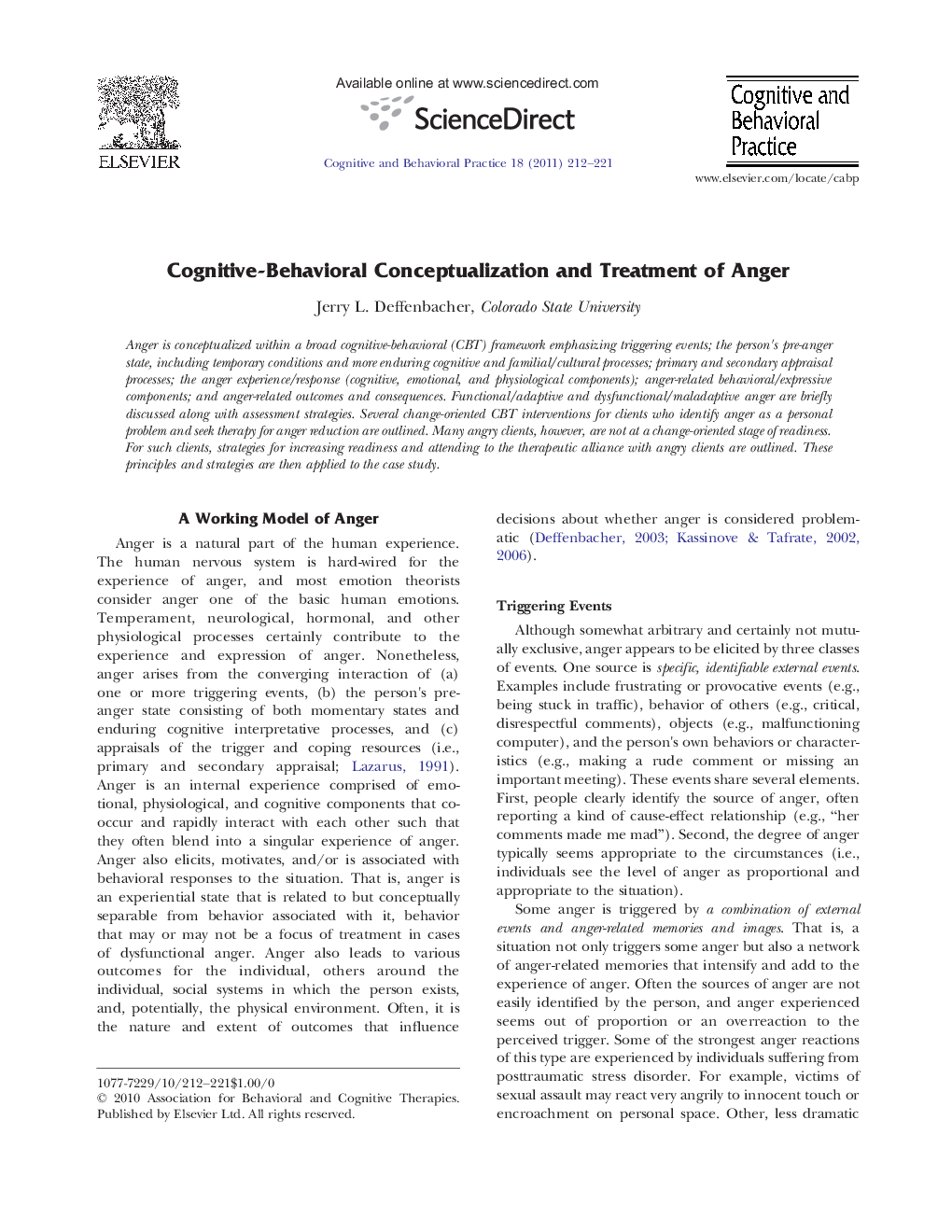| Article ID | Journal | Published Year | Pages | File Type |
|---|---|---|---|---|
| 904539 | Cognitive and Behavioral Practice | 2011 | 10 Pages |
Anger is conceptualized within a broad cognitive-behavioral (CBT) framework emphasizing triggering events; the person's pre-anger state, including temporary conditions and more enduring cognitive and familial/cultural processes; primary and secondary appraisal processes; the anger experience/response (cognitive, emotional, and physiological components); anger-related behavioral/expressive components; and anger-related outcomes and consequences. Functional/adaptive and dysfunctional/maladaptive anger are briefly discussed along with assessment strategies. Several change-oriented CBT interventions for clients who identify anger as a personal problem and seek therapy for anger reduction are outlined. Many angry clients, however, are not at a change-oriented stage of readiness. For such clients, strategies for increasing readiness and attending to the therapeutic alliance with angry clients are outlined. These principles and strategies are then applied to the case study.
